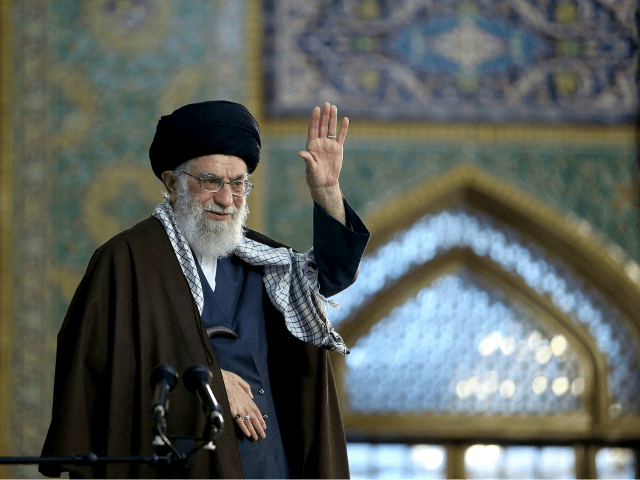Iran’s supreme leader Ayatollah Ali Khamenei called Wednesday for protesters injured during recent gasoline price protests be treated with “Islamic mercy” even after authorities confirmed hundreds were shot, killed and maimed during the most brutal crackdown since the 1979 revolution.
The plea by Khamenei appears to signal how much the mid-November protests undermined the pillars of power in the Islamic theocracy.
As Breitbart News reported, Iranian authorities shut the internet for 10 days and deployed security forces to quell the unrest, including through the use of firearms. Unofficial accountings have said between 180 and 450 people were killed — figures the government has disputed as baseless or speculative.
Reuters noted while the Iranian regime has given no official numbers for civilians killed, injured, and arrested during the crackdown, outside human rights groups have estimated anywhere from 140 to 400 deaths.
One Iranian lawmaker who sits on the national security committee said there were over 7,000 arrests.
The state-run IRNA news agency has now quoted Khamenei as responding to a report on the unrest from the country’s Supreme National Security Council by appealing for clemency and calm to prevail.
“The faster these cases are considered, the better and those who are suspected of being close to any group should be dealt with in a way that is closer to Islamic mercy,” Khamenei said, according to IRNA.
Khamenei also said citizens killed in the protests “without playing any part in instigating them” should be considered martyrs and their families should receive government stipends. Those “killed in shootouts with security forces” also should have their backgrounds examined, he said.
Martyr is among the highest honors bestowed posthumously on those deemed loyal servants of the Islamic Republic.
Authorities were also told to, “console those families that have never had any criminal backgrounds,” IRNA said, paraphrasing Khamenei.
Cheap gasoline is practically considered a birthright in Iran, home to the world’s fourth-largest crude oil reserves despite decades of economic woes. That disparity, especially given its oil wealth, fueled the anger felt by demonstrators.
Iranians have seen their savings chewed away by the rial’s collapse from 32,000 to $1 at the time of the 2015 nuclear accord to 127,000 to $1 today under the renewed U.S. sanctions. The cost of daily staples also has risen, making the removal of any government subsidy making life affordable for Iran’s people wildly unpopular.
AP contributed to this report

COMMENTS
Please let us know if you're having issues with commenting.